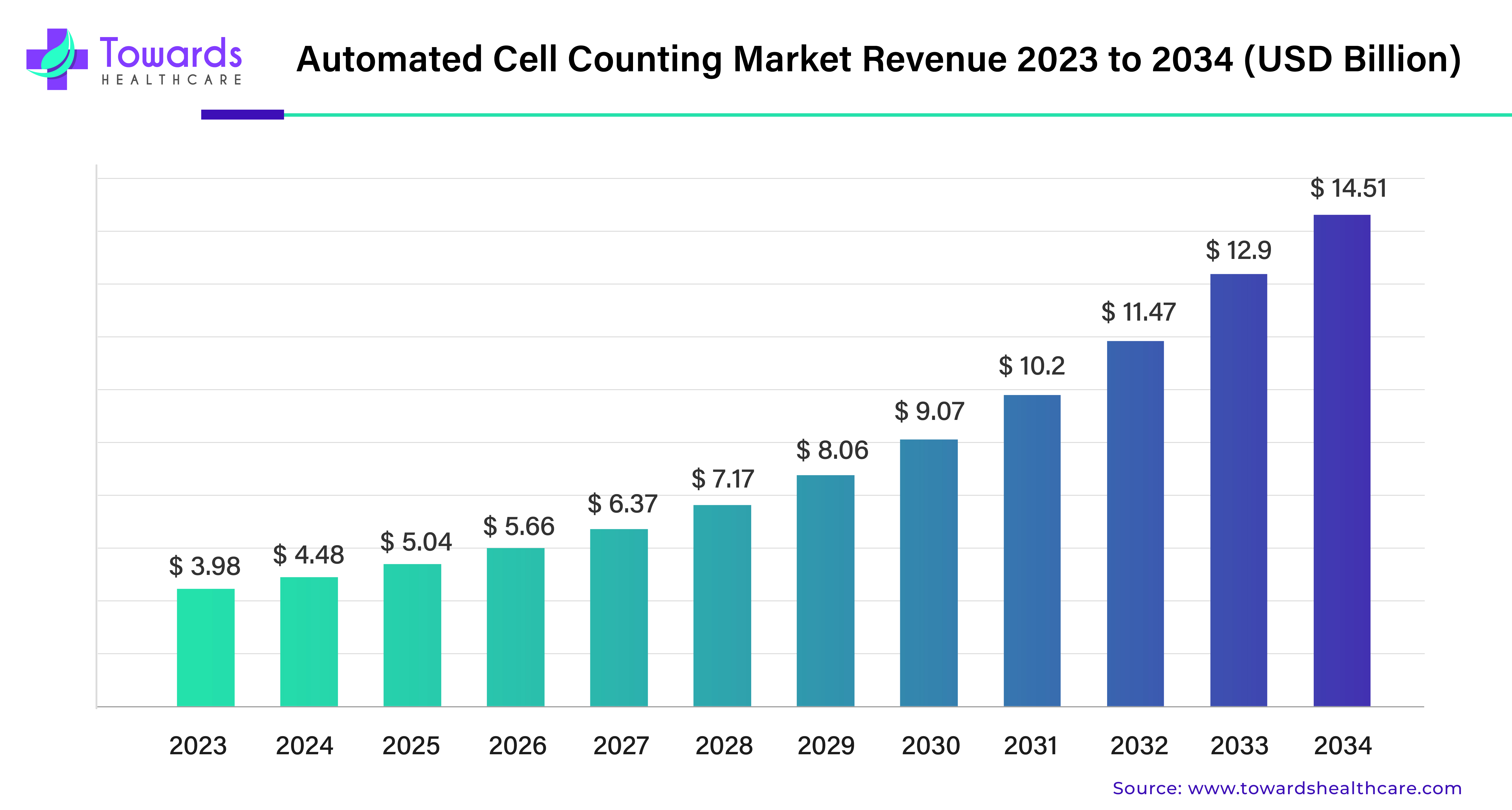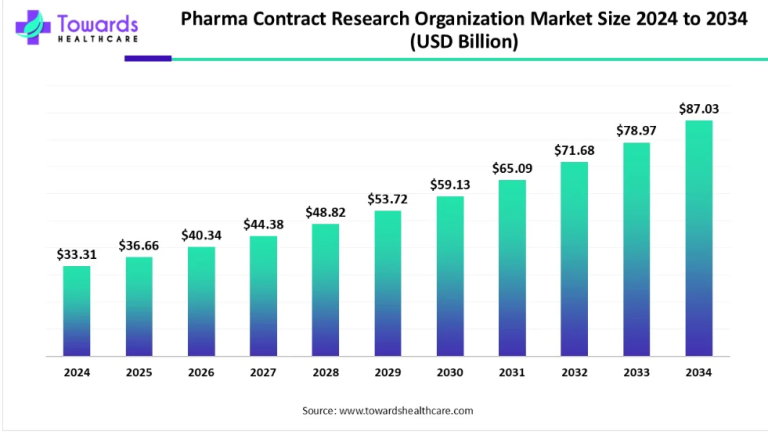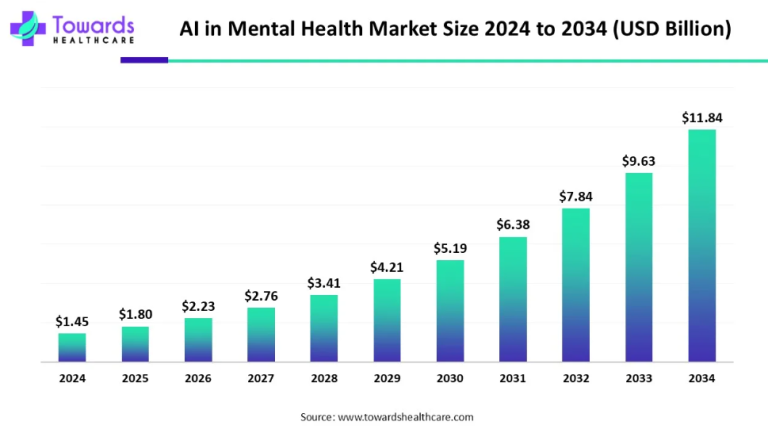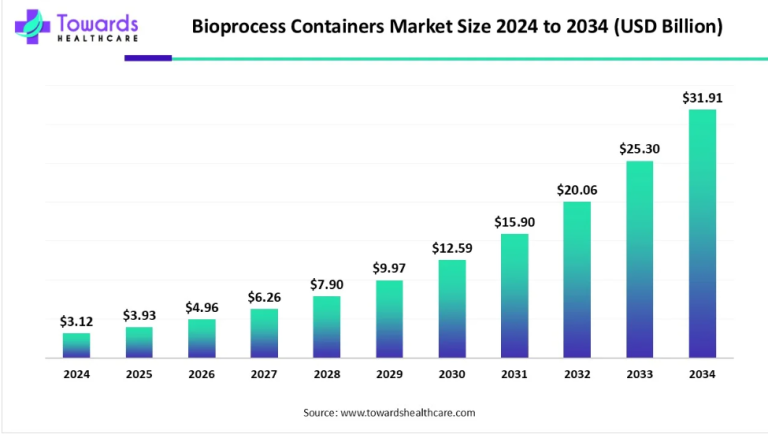AI is transforming industries across the globe, and the automated cell counting market is no exception. Traditionally, cell counting has been a time-consuming, labor-intensive process. However, with the integration of Artificial Intelligence (AI), this process is becoming more efficient, accurate, and cost-effective.
AI’s influence on automated cell counting is revolutionizing the way cell numbers and distribution are predicted. What once required painstaking manual labor and expensive hardware is now accomplished more quickly and with greater precision, thanks to AI-driven software. These advancements are streamlining workflows and significantly lowering operational costs. AI not only counts cells but also enhances the ability to differentiate between different cell types, making it particularly valuable in identifying contamination and debris during experiments.
The global automated cell counting market was estimated at US$ 3.98 billion in 2023 and is projected to grow to US$ 14.51 billion by 2034, rising at a compound annual growth rate (CAGR) of 12.48% from 2024 to 2034. This impressive growth is driven by the increasing need for cell counting in various applications, including cell culture, monitoring cell growth, developing cell-based assays, and other processes crucial for research and diagnostics. As these applications expand, the demand for automated, efficient, and precise cell counting tools rises.

Get All the Details in Our Solution – Download Brochure @ https://www.towardshealthcare.com/download-brochure/5215
A prime example of AI’s impact in this field can be seen with the launch of the Mateo FL by Leica Microsystems, a leader in scientific instrumentation and microscopy. Released in July 2024, the Mateo FL is an AI-powered digital fluorescence microscope designed to advance research applications. The device makes cell counting more efficient than ever before. Traditionally, counting cells manually could take up to 15 minutes, but with the Mateo FL, this process is reduced to just 5 seconds. This dramatic decrease in time spent not only accelerates research but also reduces the chances of contamination by a remarkable 50%.
The Mateo FL and similar AI-integrated tools mark a turning point for the industry. They offer faster, more reliable results, enabling researchers to focus their efforts on more critical aspects of their studies, such as analyzing results and conducting further experiments. This newfound speed and accuracy can potentially speed up developments in fields like biotechnology, pharmacology, and medical research, where cell counting is a crucial element.
Our Table of Content (TOC) covers key healthcare market segments, materials, technologies and trends—helping you navigate market shifts and make informed decisions: https://www.towardshealthcare.com/table-of-content/automated-cell-counting-market-sizing
Invest in Our Premium Strategic Solution @ https://www.towardshealthcare.com/price/5215
We’ve prepared a service to support you. Please feel free to contact us at sales@towardshealthcare.com
Web: https://www.towardshealthcare.com
Visit Dental Specifics: https://www.towardsdental.com
Get the latest insights on industry segmentation with our Annual Membership: Get a Subscription
For Latest Update Follow Us: https://www.linkedin.com/company/towards-healthcare



